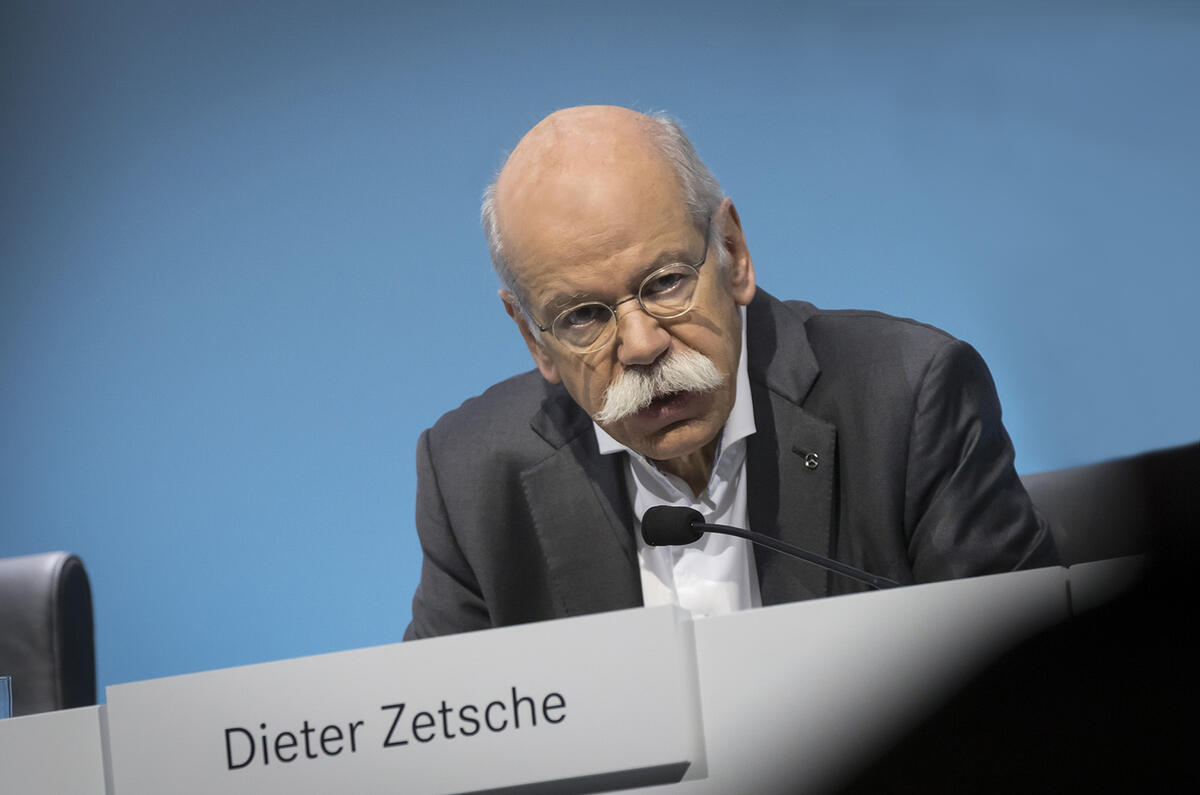After more than a decade of playing catch up to BMW, Mercedes is finally eclipsing its biggest rival – last year, it sold 2.2 million vehicles, making it the world's best-selling premium car maker.
Volume isn’t everything, though – net profit was just under €8.6 billion for 2016, which is a modest growth of 1% over 2015. BMW hasn’t announced its full-year profits yet, but based on its profit of €5.4bn in the first nine months of 2016, it doesn’t seem likely it’ll match Mercedes.
So what has helped Mercedes along the way? Well, firstly, its core offering is vastly improved on recent years. Buyers should now consider a Mercedes-Benz C-Class over an Audi A4 or BMW 3 Series, which certainly wasn’t the case in previous generations.
Talking at today’s announcement on 2016’s financial results, boss Dr Dieter Zetsche said SUVs make up 30% of Mercedes' sales. That’s no surprise when you look at industry trends, and that growth for Mercedes will only accelerate. It introduced the GLC Coupé late last year and we already know that a GLB model sitting between the Mercedes-Benz GLA and Mercedes-Benz GLC is on its way.
Other than that, Zetsche said Smart had played a role – sales increased by 19% to a new record high of 144,400 units. “Sales were especially popular in China, rising by 70% compared with 2015,” he commented.
One jewel in Mercedes' crown is AMG, which Zetsche described as a “major sales driver”. The performance brand sold 100,000 cars in 2016, an increase of 44%. And AMG boss Tobias Moers told Autocar recently that he expects that figure to grow considerably this year, too, even if it doesn’t quite match that rate of growth. Zetsche also mentioned AMG's highly anticipated hypercar, which will use Formula 1-derived hybrid drive technology. “This offers a preview of things to come at AMG. We will define performance in the era of electric drive,” he said.
Zetsche on Trump and Brexit
However, despite Mercedes’ bright outlook, there were plenty of questions posed at today’s conference about market volatility around the world. Zetsche - like many manufacturer bosses Autocar has spoken to recently – was reluctant to comment on President Donald Trump or Brexit and their possible effects on business.





Join the debate
Add your comment
"After more than a decade of
I think an indication less of what Mercedes is doing right than what BMW is doing wrong - years and years of styling conservatisim, both exterior and interior, is making customers tired of BMW, once an adventurous alternative to Mercedes but nolonger.